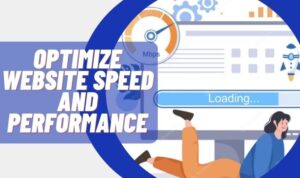Building a Personal Website opens up a world of possibilities where you can showcase your skills, achievements, and uniqueness. Get ready to dive into the realm of online personal branding and creativity with this ultimate guide.
Whether you’re a budding artist or a seasoned professional, having your own website is the key to standing out in the digital world. Let’s explore the ins and outs of creating your very own online playground!
Importance of Personal Website
Having a personal website in today’s digital age is crucial for individuals looking to establish their online presence and showcase their skills, achievements, and portfolio. Let’s dive into why having a personal website can be a game-changer.
Showcasing Skills and Achievements
- By having a personal website, individuals can create a dedicated space to highlight their skills, experience, and accomplishments.
- It serves as a centralized platform where potential employers, clients, or collaborators can get a comprehensive view of what the individual has to offer.
- With the ability to customize the design and content of the website, individuals can tailor their online presence to reflect their unique personality and professional brand.
Personal Branding and Online Presence
- A personal website plays a crucial role in personal branding, allowing individuals to define and communicate their brand identity effectively.
- It helps in establishing credibility and authority in the respective field or industry by showcasing expertise, projects, and testimonials.
- Having a well-maintained personal website can boost visibility in search engine results, making it easier for others to discover and connect with the individual online.
Setting Up a Personal Website
When it comes to setting up a personal website, there are a few key steps to consider in order to make sure you get it right. From choosing a domain name to selecting the right website building platform, each decision plays a crucial role in creating a successful online presence.
Choosing a Domain Name
Choosing a domain name is one of the first steps in setting up a personal website. Here’s a step-by-step guide to help you pick the perfect domain name:
- Brainstorm ideas that reflect your personal brand or identity.
- Keep it short, simple, and easy to remember.
- Avoid numbers and hyphens to prevent confusion.
- Consider using your name or a relevant for better visibility.
- Check for availability and register your domain through a reputable provider.
Website Building Platforms, Building a Personal Website
There are various website building platforms available, each with its own features and benefits. Here are some popular options to consider:
- WordPress: Known for its flexibility and customization options, WordPress is a great choice for creating a personalized website.
- Wix: With its user-friendly interface and drag-and-drop functionality, Wix is ideal for beginners looking to build a professional website.
- Squarespace: Offering sleek templates and integrated e-commerce tools, Squarespace is perfect for showcasing creative work or selling products online.
Selecting a Responsive Design
Opting for a responsive design is crucial when setting up a personal website, as it ensures that your site looks and functions well on all devices, including smartphones and tablets. Here’s why responsive design is important:
- Enhances user experience by providing easy navigation and readability.
- Improves search engine optimization () by complying with mobile-friendly standards.
- Increases engagement and reduces bounce rates among visitors.
- Adapts to different screen sizes, ensuring consistent branding and content presentation.
Designing Content for a Personal Website

When it comes to creating content for a personal website, it’s crucial to make sure that your pages are engaging, informative, and reflective of who you are. Let’s dive into some key aspects to consider.
About Me Page
Your “About Me” page is your chance to introduce yourself to visitors and give them a glimpse into your personality, interests, and background. Here are some tips for creating an engaging About Me page:
- Showcase your personality: Share your hobbies, interests, and what makes you unique.
- Highlight your achievements: Mention your accomplishments, experiences, and goals.
- Include a photo: Adding a picture of yourself can help make a personal connection with visitors.
- Keep it concise: Make sure your About Me page is easy to read and provides a snapshot of who you are.
Portfolio or Work Samples
Including a portfolio or work samples on your website is essential to showcase your skills and expertise. It gives visitors a tangible example of your work and what you can offer. Here’s why it’s significant:
- Demonstrates your capabilities: Displaying your work allows visitors to see what you’re capable of and the quality of your work.
- Builds credibility: A portfolio adds credibility to your personal brand and shows that you have experience in your field.
- Engages visitors: Work samples can captivate visitors and encourage them to explore more of your website.
Showcasing Skills and Experiences
Effectively showcasing your skills and experiences on your personal website can set you apart from others and leave a lasting impression. Here are some examples of effective ways to showcase your skills and experiences:
- Create a skills section: List your skills in a concise and organized manner to make it easy for visitors to see what you excel at.
- Use visuals: Incorporate images, videos, or infographics to visually represent your work and achievements.
- Share testimonials: Include testimonials from clients or colleagues to provide social proof and build trust with visitors.
- Provide project descriptions: Give detailed descriptions of projects you’ve worked on, highlighting your role and the outcomes.
Optimizing a Personal Website: Building A Personal Website
When it comes to optimizing a personal website, there are key strategies to consider in order to increase visibility and drive traffic.
Importance of Search Engine Optimization () for Personal Websites
Search Engine Optimization () is crucial for personal websites as it helps improve the website’s ranking on search engine results pages. By optimizing content with relevant s, meta tags, and backlinks, individuals can increase their chances of being discovered by users searching for similar content.
Strategies for Driving Traffic to a Personal Website
- Create high-quality, engaging content that is relevant to your target audience. This will not only attract visitors but also encourage them to stay longer on your site.
- Utilize social media platforms to promote your website and share your content. Engaging with followers and participating in online communities can help drive traffic back to your site.
- Collaborate with other websites or bloggers in your niche to cross-promote each other’s content and reach a wider audience.
- Regularly update your website with fresh content to keep visitors coming back for more.
Role of Social Media Integration in Optimizing a Personal Website
Social media integration plays a crucial role in optimizing a personal website by increasing visibility and driving traffic. By sharing website content on social media platforms such as Facebook, Twitter, and Instagram, individuals can reach a larger audience and attract new visitors to their site. Additionally, social media engagement, such as likes, shares, and comments, can improve the overall reach and visibility of the website.
Maintaining and Updating a Personal Website

Once your personal website is up and running, it’s essential to establish a schedule for regular updates and maintenance to ensure its continued success.
Regular Updates Schedule
Setting a consistent schedule for updating your personal website is crucial to keep your audience engaged and attract new visitors. Whether it’s weekly blog posts, monthly portfolio updates, or quarterly design refreshes, having a plan in place will help you stay organized and on track.
Importance of Fresh Content
- Regularly updating your website with fresh content not only keeps visitors coming back for more but also improves your search engine rankings. Search engines like Google favor websites that are frequently updated with relevant and valuable content.
- By showcasing your latest work, sharing industry insights, or providing updates on your projects, you demonstrate your expertise and professionalism to your audience.
- Keeping your content up to date also helps you stay ahead of the competition and positions you as a thought leader in your field.
Monitoring Website Analytics
It’s crucial to monitor your website analytics regularly to understand how your audience interacts with your site and identify areas for improvement.
Tracking metrics such as page views, bounce rate, time on page, and conversion rates can provide valuable insights into what content is resonating with your audience and what can be optimized.
Based on the data gathered, you can make informed decisions on updating your website layout, refining your content strategy, or implementing new features to enhance user experience and drive better results.
